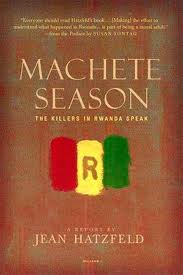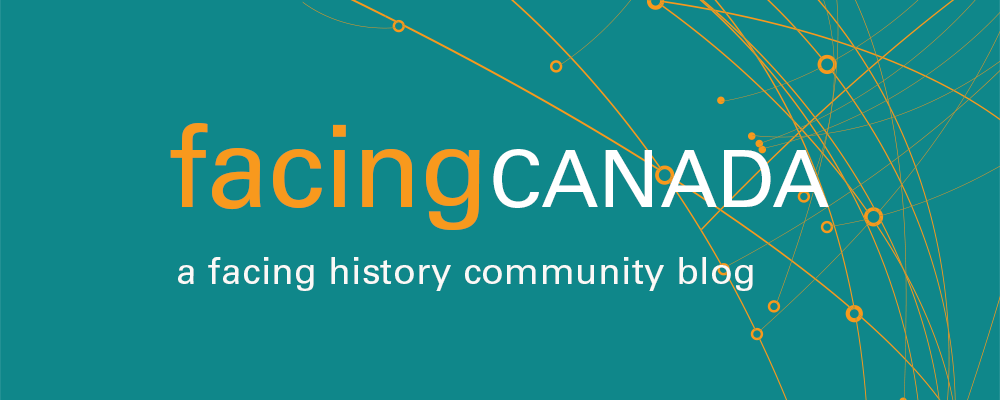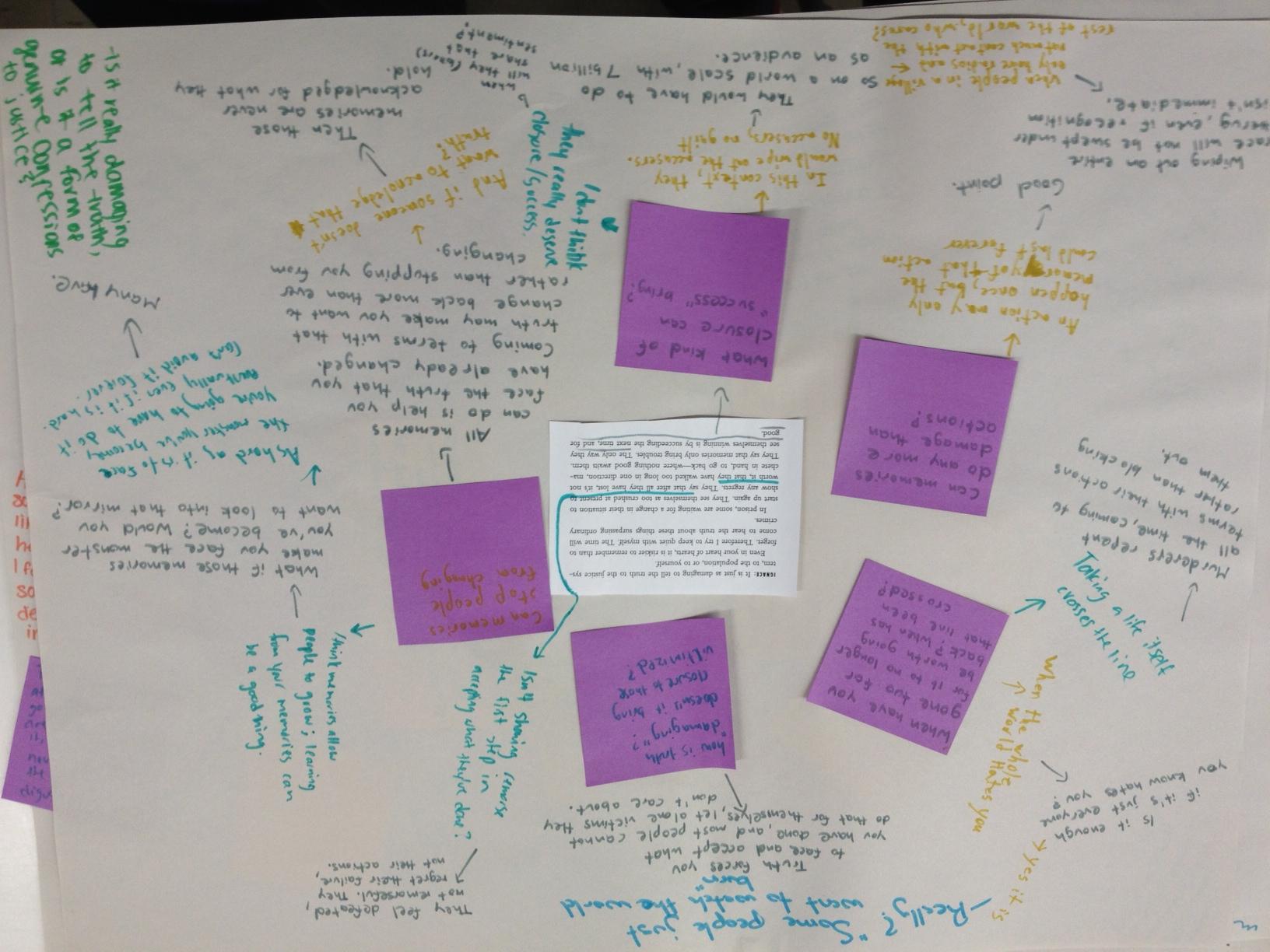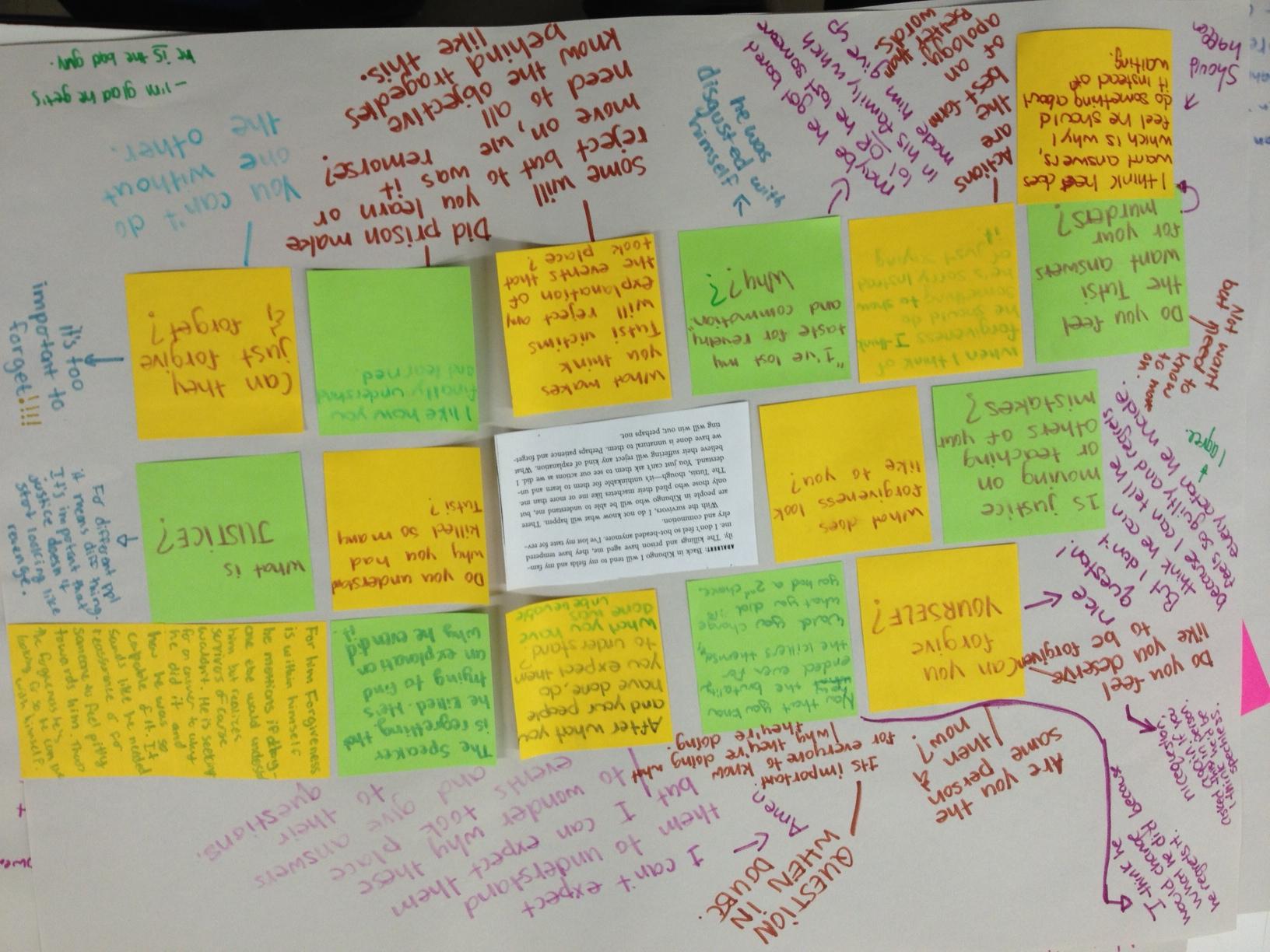After a year of learning about Genocide and Crimes Against Humanity, students gravitate towards complex and profound questions that are increasingly difficult to answer. In a setting that involves teaching at-risk youth, this type of engagement can be frustratingly elusive. The lesson (content wise) that I will share with you today is one that should not stand alone. This took place in class after having done 3 case studies, including Rwanda, and a unit on concepts of Justice and Memorial. I found that this lesson was very successful at engaging students of all stripes through particular stories of perpetrators to try to gain a better understanding of universal questions of guilt, responsibility, reconciliation, and justice.
Of equal importance to the content is the delivery strategy. For this, I will go into detail on a Facing History and Ourselves strategy mentioned by Michael Grover in his blog Strategies for Teaching Facing History in 'Urban Schools' ; Big Paper.
Big Paper is an amazing tool of engagement for a number of reasons:
1) Students have to slow down and write out their thoughts. This forces them to think differently about the words that they are “saying”.
2) Have those students who REALLY love to talk? They can; they just have to do it silently.
3) Have those students who REALLY hate to talk? This slows the conversation down and allows them a voice in a much less threatening situation.
4) Have both types in the same class? Perfect!
5) Want to have a written record of discussions available for debrief?
6) Want to use student generated ideas to frame your debrief?
7) Want students to have the opportunity to gather ideas, insights, and feedback in small groups from their peers before opening to large discussion? Then Big Paper is for you!
I believe that I have now adequately gushed about Big Paper.
Using this strategy, we explored excerpts from “Machete Season” by Jean Hatzfeld. Machete Season is a collection of excerpts of interviews that Hatzfeld holds with perpetrators of the Rwandan Genocide while they are in prison. The excerpts deal mainly with conversations that he has with the prisoners about justice, forgiveness, and reconciliation. This difficult and complex content explored through Big Paper allowed our class to achieve an amazing level of intellectual and personal engagement. Below are two examples of the type of silent conversations that take place:
If you have ever used Big Paper, or this inspires you to try it in your classroom, I would love to hear about your successes and struggles!
P.S.
Click here > MacheteSeason < to see the excerpts that I used in class.



